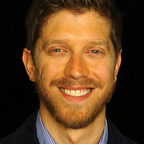60+ people. 12 days. 1 country.
This January as part of our MBA journey at Cornell Tech, Chelsea Sassouni and I led over sixty students on a trip to Israel, to explore the country from a range of perspectives.
As an Israeli myself, I had to responsibility to ensure that by the end of the trip, everyone in the group had the opportunity to gain a clearer, objective, mature and modern understanding of Israel.
To make things clear — this was not the ordinary Birthright Trip focused on sightseeing and fun. The Cornell Tech Israel Trek is a professional trip, which requires a lot of work both prior to and during the trip. Our task was to provide consulting recommendations to 36 early stage startups, small-businesses and corporate firms in Israel that were looking to either identify their target market, choose the right business model or develop a go-to-market strategy.
What do startups need?
The obvious answer is money. However, there is a lot going on behind that money. I recognized a common challenge among startups: identifying their target market.
We have seen way too many startups develop cool products without a deep understanding or definition of their target market. Who is the typical customer? Who will actually pay for the product? Israel brands itself as the startup-nation. While this brand is a strength for the country, it is a highly competitive ecosystem in which having a great product is just not enough. Understanding who your customers are is crucial.
Cornell Tech students performed market analysis on industries such as AdTech, Physical Security, TravelTech, FinTech, HealthTech, Social Networks, Apparel, IoT, Pharmaceutical, Cyber Security and more. We were able to leverage Cornell University recourses, personal connections and supportive faculty to provide professional recommendations.
“Everyone you will ever meet knows something you don’t”
You only fail if you do not learn from failing
To close the loop, we presented our consulting recommendations in front the leaders and founders of these 36 companies as well as a rotating panel of industry experts. Panel members included partners from EY, successful entrepreneurs, private investors, CEOs, experienced consultants, venture capitalists and more.
As MBAs, the opportunity to present in front of such an experienced audience is crucial to our learning process. Prior to Cornell Tech, my classmates were entrepreneurs, consultants, engineers, marketing managers, sales people, product managers and project managers. While many of us came to the table with experience, the panel members showed no mercy and helped us all understand the rigorous startup culture in Israel. Interacting with the founders and panelists in this environment challenged us to push ourselves further than we expected.
Diversity of thought
The Cornell Tech MBA started at Cornell University in Ithaca, NY. There, we were asked to solve dozens of formal business cases ranging various industries. While these experiences were valuable and required skill, it was all very abstract. We were able to solve business problems and make recommendations but without creating anything new for the world.
As part of the trip to Israel, we participated in a hackathon initiated by Sears Israel to create technology based startups with the mission of Reinventing Shopping. We partnered with design students from the Shenkar School of Design and Engineering to ideate and develop our startup ideas.
Two heads are better than one
We planned, filmed, sketched and presented 12 startup pitches in front of over 100 people. I was amazed by how fast we were able to take a simple idea and turn it into reality. The Shenkar students impressed us all with their creativity, professionalism and fantastic teamwork skills. Combining our technical and business perspective with the Shenkar designers enabled us to develop truly unique ideas. The winning team, FAD (Fashion and Design), proposed using multiple physical data sources and big data technologies to create new business insights that can improve customers engagement and personalization as well as provide better in-store measurements.
You have to be there to understand
The Cornell Tech MBA 17" consist students from almost 20 countries who speak about 12 languages. We are Christians, Jewish, Muslims, Hindus, Buddhists and Atheists.
You can not visit Jerusalem without going to the Western Wall. For me, visiting the Western Wall involved no surprises. I came, prayed and had my inner spiritual moment just like every time in the Western Wall. However, for some of my classmates that visit was full of surprises.
Somehow Hindus and buddhists students from India felt strong spiritual connection when reaching the Western wall. Same goes for Christians. This experience is exactly what they needed in order to understand the importance of this location to both Jewish and Muslims from all corners of the world. You have to be there to understand.
Bonding is the name of the game
Until the trek to Israel we were just another MBA class. We learned a lot together, from each other and from the faculty members.
Having so many personal experiences with each other, socially or professionally, leads to deeper friendships. Now, we are all friends for life.
Thank you all.
Adam
#TechTrek17
